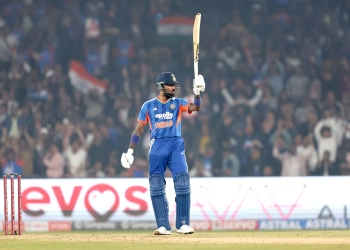In an unprecedented achievement that has redefined the landscape of women’s football in India, the Indian Women’s football team has created history by securing qualification for Asian competitions across all age groups. For the first time ever, India’s senior, U20, and U17 women’s teams will all represent the nation in their respective AFC Asian Cup tournaments in 2026, marking a golden era for women’s football development in the country.
Table of Contents
The Historic Triple Qualification Achievement
The Indian Women’s football team’s remarkable 2025 campaign culminated in what can only be described as a historic hat-trick of AFC Asian Cup qualifications. This extraordinary achievement positions India among the elite football nations of Asia, with representation spanning all competitive age categories for women’s football.

The journey to this milestone began with the senior Indian Women’s football team successfully navigating the AFC Women’s Asian Cup Australia 2026 qualifiers in Thailand. Led by head coach Crispin Chettri, the team demonstrated exceptional resilience and tactical prowess, defeating Thailand 2-1 in the crucial qualifying match to secure their berth.
India’s AFC Asian Cup Qualification Journey 2025
| Age Group | Tournament | Qualification Status | Host Country (2026) |
|---|---|---|---|
| Senior Team | AFC Women’s Asian Cup | Qualified | Australia |
| U20 Team | AFC U20 Women’s Asian Cup | Qualified | Thailand |
| U17 Team | AFC U17 Women’s Asian Cup | Qualified | China |
This comprehensive representation across all age groups represents a significant leap forward for Indian women’s football, demonstrating the depth and quality of talent development programs implemented by the All India Football Federation (AIFF).
Senior Team’s Breakthrough: First Qualification Since 2003
The senior Indian Women’s football team’s qualification for the AFC Women’s Asian Cup Australia 2026 holds special significance as their first successful qualification campaign since 2003. The team’s impressive run in the qualifying rounds showcased tactical maturity and individual brilliance that had been building over recent years.
During the qualifiers in Chiang Mai, the Indian Women’s football team delivered commanding performances, defeating Mongolia 13-0, Timor-Leste 4-0, Iraq 5-0, and securing the crucial 2-1 victory over Thailand that sealed their qualification. This dominant display highlighted the team’s attacking prowess and defensive solidity under pressure.
Head coach Crispin Chettri’s tactical approach emphasized the distinct challenges of managing a women’s team, noting the physiological considerations and injury prevention strategies that form part of modern women’s football preparation.
U20 and U17 Teams: Building the Future Foundation
The success of India’s youth teams represents the most encouraging aspect of this historic achievement. Under the guidance of head coach Joakim Alexandersson, both the U20 and U17 Indian Women’s football teams have demonstrated exceptional progress in their respective qualification campaigns.
The U20 team’s qualification for the AFC U20 Women’s Asian Cup Thailand 2026 was achieved through consistent performances in Myanmar, where they showed tactical discipline and technical proficiency that bodes well for the future of Indian women’s football.

Youth Development Success Metrics
| Performance Indicator | U20 Team | U17 Team | Strategic Impact |
|---|---|---|---|
| Qualification Campaign | Myanmar 2025 | Bishkek 2025 | First-time achievements |
| Key Victories | Multiple competitive wins | 2-1 vs Kyrgyz Republic, 2-1 vs Uzbekistan | Resilience under pressure |
| Coaching Development | Joakim Alexandersson | Joakim Alexandersson | Continuity and expertise |
The U17 team’s historic qualification represents their first-ever successful campaign at this age group level. Their victories against Kyrgyz Republic and Uzbekistan in Bishkek demonstrated the character and technical ability that coach Alexandersson has been developing within the squad.
Strategic Implications and AIFF’s Long-term Vision
AIFF President Kalyan Chaubey has outlined comprehensive preparation plans following these historic qualifications. A strategic meeting involving key officials including Technical Director Syed Sabir Pasha and Director of National Teams Subrata Paul has established detailed roadmaps for each team’s preparation.
The federation’s planning includes organizing the 2025-26 Indian Women’s League season from September 2025 to January 2026, featuring eight teams playing 14 matches each. Significantly, the Indian U20 women’s team will also participate in the IWL, ensuring competitive match exposure for emerging talent.
Coach Alexandersson’s Vision for Sustainable Growth
Head coach Joakim Alexandersson, who guided both the U20 and U17 teams to their historic qualifications, emphasized the broader impact of these achievements: “It definitely means a lot – especially for women’s football, but also for Indian football overall. Hopefully, this encourages more girls to start training earlier and build greater interest in the game among young players.”
Alexandersson’s dual role with both youth teams has provided strategic continuity and enabled the implementation of consistent playing philosophies across age groups. His experience and tactical approach have been instrumental in developing the technical and mental aspects of young Indian players.
Preparation Timeline for Asian Cup Tournaments
| Month | Senior Team Activities | Youth Team Activities | Strategic Focus |
|---|---|---|---|
| Nov 2025 – Jan 2026 | IWL participation & training camps | Continued development programs | Match fitness & tactics |
| Feb 2026 | Final preparation phase | Tournament-specific training | Peak performance preparation |
| Mar 2026 | AFC Women’s Asian Cup Australia | Support & learning opportunities | Competition experience |
| Apr-May 2026 | Post-tournament analysis | AFC Youth tournaments | Development assessment |
Impact on Women’s Football Development in India
This triple qualification success represents more than just tournament participation—it signifies a fundamental shift in the perception and investment in women’s football across India. The achievement validates the AIFF’s strategic focus on women’s football development and provides inspiration for the next generation of female footballers.
The Indian Women’s football team’s success across all age groups creates a robust talent pipeline that ensures sustainable development. With each player projected to play at least 30 matches between August and February combining club and international commitments, the exposure and experience gained will be invaluable.
Building Toward Continental Excellence
Senior team head coach Crispin Chettri is already incorporating promising junior players into his broader squad planning for the Australian tournament. This integration strategy ensures that the success at youth levels translates into senior team depth and quality.
The Indian Women’s football team’s current FIFA ranking of 68th globally and 11th in Asia provides a solid foundation for continental competition. The team’s recent performances, including victories in the SAFF Women’s Championships (2010, 2012, 2014, 2016, 2019) and strong showings in regional competitions, demonstrate their competitive capability.
The comprehensive qualification across all age groups positions India to compete meaningfully in each tournament while gaining invaluable experience that will benefit long-term development. The exposure to high-level Asian competition will accelerate the learning curve for all players and coaching staff.
Looking Ahead: The 2026 Asian Cup Tournaments
As the Indian Women’s football team prepares for their respective Asian Cup campaigns, the focus shifts to maximizing the opportunity these tournaments present. The experience gained from competing against Asia’s best teams will provide crucial learning opportunities and help establish India’s position in continental women’s football.
The success of this qualification campaign demonstrates that with proper planning, investment, and strategic vision, Indian women’s football can compete at the highest levels. The achievement serves as a foundation for even greater ambitions, including eventual qualification for FIFA Women’s World Cup and Olympic competitions.

This historic triple qualification represents not just a moment of celebration, but the beginning of a new chapter in Indian women’s football—one characterized by sustained excellence, strategic development, and continental competitiveness across all age groups.
Read More: Napoli Midfielder Kevin De Bruyne Sidelined for 4 Months with Serious Injury
FAQs
Which Indian Women’s football teams have qualified for the 2026 Asian Cup tournaments?
All three Indian Women’s football teams have qualified for their respective AFC Asian Cup tournaments in 2026: the senior team for the AFC Women’s Asian Cup in Australia, the U20 team for the AFC U20 Women’s Asian Cup in Thailand, and the U17 team for the AFC U17 Women’s Asian Cup in China.
When was the last time the senior Indian Women’s football team qualified for the AFC Asian Cup?
The senior Indian Women’s football team last qualified for the AFC Asian Cup in 2003, making their 2026 qualification particularly significant as it ends a 23-year gap. They also hosted the 2022 tournament but were forced to withdraw due to a COVID-19 outbreak within the team.
Who is coaching the Indian Women’s football teams for these Asian Cup campaigns?
The senior team is coached by Crispin Chettri, while Joakim Alexandersson serves as head coach for both the U20 and U17 teams. Alexandersson’s dual role has provided strategic continuity across the youth age groups, contributing to both teams’ successful qualification campaigns.
How did the Indian Women’s football teams perform in their respective qualification campaigns?
The senior team secured qualification by defeating Thailand 2-1 after impressive group stage victories including 13-0 vs Mongolia and 5-0 vs Iraq. The U20 team qualified through their campaign in Myanmar, while the U17 team achieved their historic first-ever qualification with victories over Kyrgyz Republic and Uzbekistan (both 2-1) in Bishkek.
What is the significance of this triple qualification for Indian women’s football?
This achievement represents a historic first for Indian women’s football, with all age groups qualifying simultaneously for Asian Cup tournaments. It demonstrates the depth of talent development, validates the AIFF’s investment in women’s football, and creates a robust pipeline for future success while inspiring increased participation among young girls across India.








